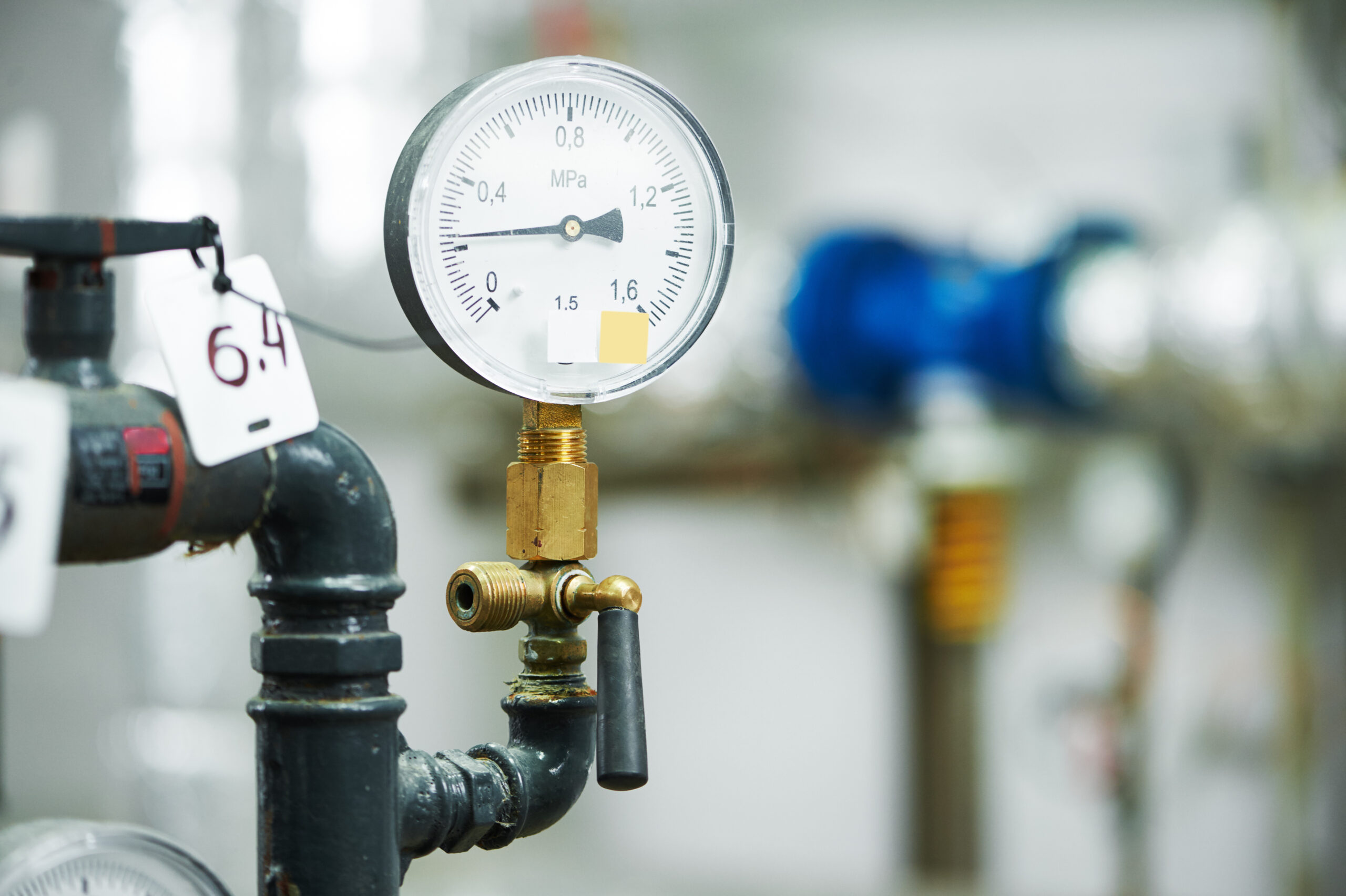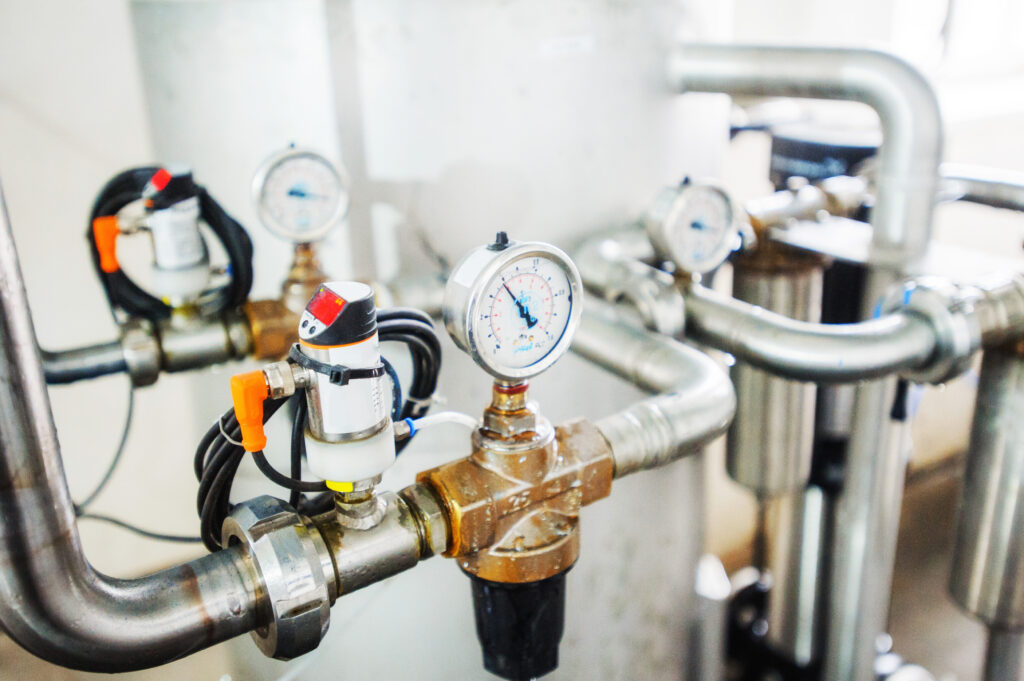
07.10.2024
CLIMIT; Testing of Mass-flow meters for CO₂
Cignus Instruments AS is developing a patented concept for mass flow measurement of liquids and gases, offering technological advantages particularly relevant for the CCS value chain.
The demand for accurate and scalable mass flow measurement, like from Cignus Instruments, in CCS projects is significant, as current technology does not fully meet the industry’s specific requirements. Traditional Coriolis meters face challenges when scaled up to larger dimensions and when operating under high pressure. Additionally, Coriolis technology can result in significant internal pressure drops, which can cause issues when measuring liquids near their boiling point, thereby increasing measurement uncertainty.
The project is supported by CLIMIT with NOK 1.7 million. Founder and CEO Martin Nese is the project manager at Cignus Instruments AS.

Objective
Aim of the project is to demonstrate the advantages of Cignus technology in large-scale CCS facilities. The technology offers a more accurate and simpler method for mass-flow metering of CO2. – We conducted a test campaign at Equinor’s P-Lab at Herøya, Porsgrunn. Here we observed that the pressure drop through the Cignus meter was limited to about one-tenth of that through a straight-tube Coriolis meter, with the same capacity, says Martin Nese.
– Low, permanent pressure drop is particularly important for reducing the risk of boiling – and thus minimizing measurement uncertainty when measuring CO2 in liquid phase. Lower pressure drop means lower energy consumption, highlighting the potential for Cignus technology in large-scale applications.
Project Deliverables
The prototype demonstrated the functionality and accuracy of the Cignus Mass-flow meter for CO2 in gas, liquid, and supercritical phases under relevant industrial conditions. The test campaign at Equinor’s P-Lab was initially scheduled for Q1 2023, but was postponed to October of the same year. This delay provided more time to characterize and conduct various tests on the CO2 prototype.
The prototype has now been tested with the correct medium in an installation that closely resembles a real process plant, demonstrating that the instrument performs as expected, even when the load varies over a wide range. When measuring mass flow and fluid density, the Cignus meter’s accuracy is comparable to Coriolis meters installed in series.
Scaling Up
The next step in development is building and qualifying a full-size CO2 meter, with a capacity of 1,000 tons/hour and a design pressure of 300 bar for installation in a large-scale CCS pilot plant by 2026. – We plan to test the technology in a full-scale installation as early as possible to gather as much field experience as possible under continuous operation. At the same time, we will establish a supply chain and capacity to produce the final product for large-scale CCS applications starting in 2026, explains Martin Nese. This will be a significant step forward, not just for Cignus but for the entire CCS industry. By providing a more accurate and reliable method for measuring CO2, particularly in large pipelines and under challenging operating conditions, the technology has the potential to become an industry standard.
Well-Positioned
– Cignus Instruments is well-positioned to lead the development of the next generation of Mass-flow meters, with special focus on the CCS industry. We also see great potential in implementing such meters subsea, where it is crucial to know the exact amount of CO2 distributed to each well. All of this points to an exciting future for Cignus Instruments and their contribution to global CO2 reduction, says Ernst Petter Axelsen, Gassnova’s representative in the CLIMIT program and advisor to the Cignus project.
Future Prospects
– We plan to produce the meters in collaboration with suppliers in the Stavanger area, who have experience from the oil and gas industry. In the long term, we also see potential for collaboration with DNV, which is establishing a commercial calibration lab for CO2 meters in the Netherlands. This will give us the opportunity to offer large-scale calibration services, which is essential for gaining the necessary trust in the industry, Martin continues.
Martin also discusses opportunities to expand the business model. – We are considering offering data collection services as part of our business model, rather than just delivering the instruments themselves. This is something we will explore further when we have a fully qualified product. We believe that access to real-time data and the ability to perform health checks on the instruments during operation, could be valuable services for our customers.
Regarding international cooperation, Martin explains that they are collaborating with several entities, both in Norway and internationally. – Norway is a leader in CO2 storage technology, and there is an expectation that insights from Norwegian CCS projects will be shared internationally, especially in Europe. Therefore, Cignus Instruments is looking at opportunities to expand internationally, leveraging several upcoming reference projects.
